


The IDF and the Ultra-Orthodox
Written By: Haim Zicherman
As the Knesset prepares to vote on the "Draft Law" designed to regulate the service of ultra-Orthodox men in the Israel Defense Forces, Dr. Haim Zicherman surveys the current situation within Israel's Haredi community.

The Electoral Threshold: Why the Rush?
Written By: Prof. Ofer Kenig
In an op-ed in the Jerusalem Post, Dr. Ofer Kenig warns that while there is nothing wrong with a moderate increase in Israel's electoral threshold, increasing it from 2% to 3.25% in a single step is problematic.

Is "Israeli" a Nationality?
Written By: Jay Ruderman, Prof. Yedidia Z. Stern
Should the State of Israel recognize "Israeli" as a nationality? IDI Vice President Prof. Yedidia Stern and Jay Ruderman assert that it is imperative for the State of Israel to continue distinguishing between citizenship and nationality.

Building a Shared Society: On the Priorities of the Israel Police
Written By: Prof. Mordechai Kremnitzer
Prof. Mordechai Kremnitzer explains the importance of the fifth meeting of IDI's Police and Society Forum, which was dedicated to the question of partnership and transparency in the relationship between the Israel Police and Arab society.
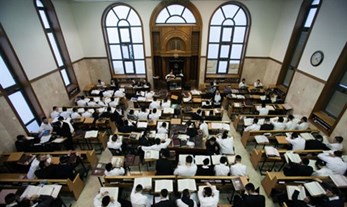
An Unequal Share of the Burden? The Truth about the Hesder Yeshivot
Written By: Prof. Benjamin Porat
Do students in the religious Zionist hesder yeshivot really contribute less to the IDF than other men who serve? IDI Researcher Dr. Benny Porat does the math and comes to an interesting conclusion.
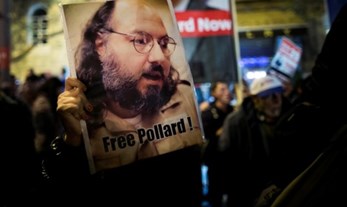
The Case of Jonathan Pollard: A Legal Analysis
Written By: Prof. Mordechai Kremnitzer
In an op-ed in The Jerusalem Post, IDI Vice President Prof. Mordechai Kremnitzer analyzes Jonathan Pollard's life sentence and calls on President Obama to put an end to Pollard's incarceration In the name of the shared commitment to justice.
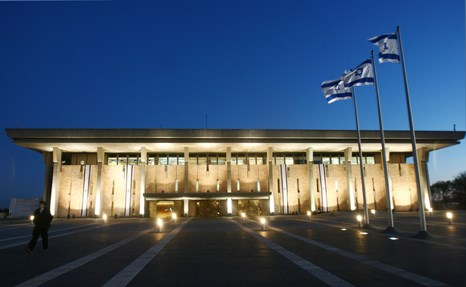
Who Will Guard the Guards?
Written By: Dr. Chen Friedberg
IDI Researcher Dr. Chen Friedberg warns that the government's prolonged inability to appoint a permanent head of the Knesset Foreign Affairs and Defense Committee may be causing serious harm to the very foundations of Israeli democracy.
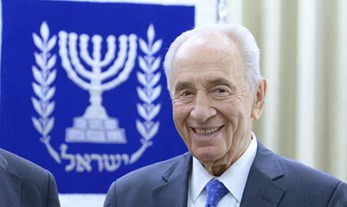
Who Needs a President Anyway?
Written By: Prof. Ofer Kenig
In an op-ed in Makor Rishon, Dr. Ofer Kenig responds to calls to eliminate the institution of the presidency, and explains the value of the presidency in Israel and other parliamentary democracies.

Have No Fear: On the Inclusion of People with Intellectual Disabilities in Society
Written By: Benjamin (Benny) Lau, Shira Ruderman, Admiral (Res.) Amichay (Ami) Ayalon
An op-ed by IDI Senior Fellow Admiral Ami Ayalon, Project Head Rabbi Dr. Benny Lau, and Shira Ruderman of the Ruderman Foundation, stressing the need to dispel the fear of the Other and the Different.
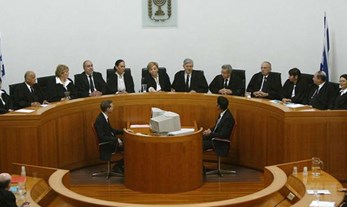
The Haredi Draft: Is the Shaked Committee's Bill Destined to be Overturned?
Written By: Prof. Yedidia Z. Stern
As the Shaked Committee begins to vote on its proposal for the Haredi draft, Prof. Yedidia Z. Stern warns that the proposal's recommendation to exempt Haredi men of draft age during a three-year "adjustment period" is both inequitable and ineffective.

Does Israel Need a Police Prosecution Department?
Written By: Prof. Mordechai Kremnitzer, Dr. Guy Lurie
In an op-ed in <em>Haaretz</em>, IDI Vice President Prof. Mordechai Kremnitzer and Dr. Guy Lurie call for reform that will abolish the Police Prosecution Department, leaving the Police to investigate and the Public Prosecution to bring criminal charges.

At the Starting Line: The Israeli Presidential Race Begins
Written By: Prof. Ofer Kenig
Is Prof. Dan Shechtman, who formally announced his candidacy for the 2014 presidential race in Israel, any different than traditional candidates for the position? IDI researcher Dr. Ofer Kenig surveys the characteristics of Israel's past presidents and presidential candidates.

Civil Unions for All
Written By: Prof. Shahar Lifshitz
Prof. Shahar Lifshitz explains why IDI's proposal for civil unions, which was first presented in his IDI policy paper The Spousal Registry, is the best solution possible today for alleviating the distress of couples who cannot or do not want to marry in a religious ceremony in Israel.
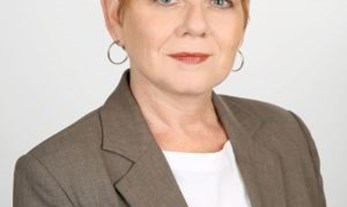
Do You Have to Earn Dignity?
Written By: Prof. Tamar Hermann
Is dignity something that must be earned? Prof. Tamar Hermann, Head of IDI's Guttman Center for Surveys, explores this question, as IDI's Israel Speaks project assembles 200 citizens to begin drafting a Declaration of Human Dignity.

A Truly Supreme Court
Written By: Prof. Mordechai Kremnitzer, Dr. Guy Lurie
In an op-ed in TheMarker, IDI Vice President Prof. Mordechai Kremnitzer and Dr. Guy Lurie discuss the benefits of establishing a new appellate court between the district courts and the Supreme Court.
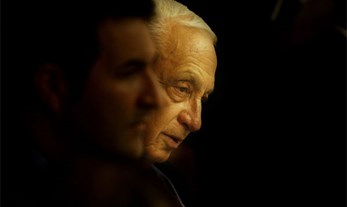
Remembering Ariel Sharon (1928–2014)
Written By: Prof. Ofer Kenig
Dr. Ofer Kenig presents some of the milestones in the career of Ariel Sharon, the 11th Prime Minister of the State of Israel.

Non-Jews in a Jewish State: Searching for a New Paradigm
Written By: Kalman Neuman
In an article in The Jewish Week, Rabbi Dr. Kalman Neuman of IDI's Religion and State project examines some of the thorny questions of Jewish law when it comes to non-Jews in a Jewish state.
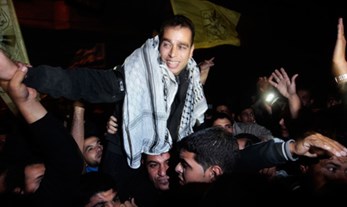
Releasing Terrorists: An Insult to the Criminal Justice System
Written By: Dr. Amir Fuchs
In an article in <em>Haaretz</em>, attorney Amir Fuchs explains why he believes the release of convicted terrorists as part of prisoner release deals or as part of diplomatic negotiations degrades Israel's criminal justice system.

Human Rights under Attack
Written By: Dr. Amir Fuchs
IDI Researcher Attorney Amir Fuchs discusses two indirect threats to human rights in Israel: attacks on the Israeli Supreme Court and attacks against Israeli human rights organizations.

Marriage Equality for the Hearing Impaired
Written By: Benjamin (Benny) Lau
Rabbi Dr. Benjamin (Benny) Lau celebrates a planned change in the Chief Rabbinate's policy regarding the treatment of hearing impaired individuals when it comes to marriage in Israel.

International Disabilities Day 2013: Human Rights and Judaism in Action
Written By: Benjamin (Benny) Lau
In honor of International Day for Persons with Disabilities, Rabbi Dr. Benjamin (Benny) Lau updates us on IDI's efforts on behalf of people with disabilities and reveals that people with guide dogs are now allowed to access the Western Wall.

The Referendum Law as a Metaphor
Written By: Dr. Arye Carmon
In an op-ed originally published in Haaretz, IDI Former President and Founder Dr. Arye Carmon explains his reservations about the "Referendum Bill" and warns that the concept of referendum is antithetical to the principles of democracy.
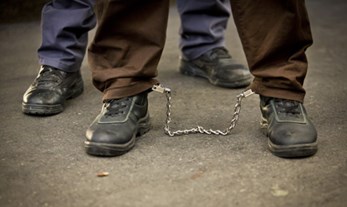
Organized Criminals Today, Everyone Else Tomorrow
Written By: Lina Saba
In an op-ed in Haaretz, Attorney Lina Saba-Habesch warns that extending the use of administrative detention to apply to suspects in cases of organized crime could lead to the use of this extreme method, or of other extreme methods, in combating other forms of crime.
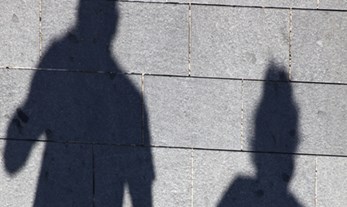
The Fate of a Mamzer
Written By: Gitit Paz
In an article in The Jewish Week, Gitit Paz, a young scholar in IDI's Human Rights and Judaism project, discusses the status of mamzer in Jewish law and in contemporary Israel.
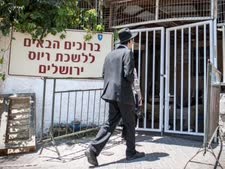
The Haredi Draft: Equality Now?!
Written By: Prof. Yedidia Z. Stern
On November 21 2013, Prof. Yedidia Z. Stern appeared before the Shaked Committee and argued that criminal sanctions are not recommended for reaching conscription goals. In an op-ed in Makor Rishon, he explains why.

The Labor Primaries: Will Shelly Yachimovich Break the Losing Streak?
Written By: Prof. Ofer Kenig
Will Shelly Yachimovich manage to succeed where others have failed and maintain her position as chair of the Labor Party for a second term? Dr. Ofer Kenig shares insights on the upcoming primaries for the party leadership.

Prof. Mordechai Kremnitzer Speaks Out on Using Administrative Detention in Cases of Organized Crime
Written By: Prof. Mordechai Kremnitzer
IDI Vice President of Research Prof. Mordechai Kremnitzer responds to the possibility that the police will use administrative detention to combat organized crime, much in the manner as it is used to combat terrorism.

Using Administrative Detention to Combat Organized Crime
Written By: Aviad Ben Yehuda
Aviad Ben Yehuda discusses the problematic nature of the proposal to extend the use of administrative detention in Israel from the war on terror to the war on organized crime.

The Binding of the Boy from Damascus
Written By: Prof. Yedidia Z. Stern
How should Jews in Israel feel about the mass slaughter of Arabs by Arabs just a few miles away? IDI Vice President Prof. Yedidia Z. Stern shares thoughts in this article, which was originally published in The Jewish Week.

